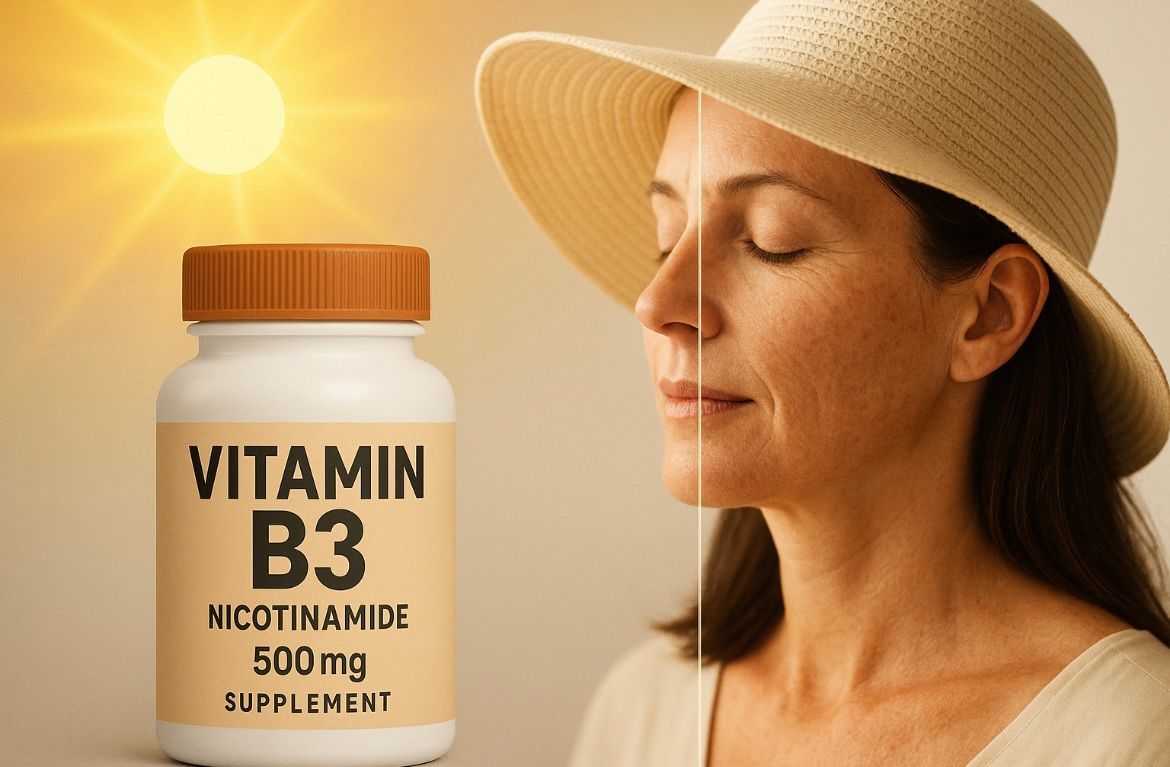How Nicotinamide (Vitamin B3) Cuts Risk of Non-Melanoma Skin Cancer – 14% in General, 54% If You’ve Had One Before
Nicotinamide, a form of Vitamin B3, shows promise in lowering non-melanoma skin cancer risks reducing recurrence by over 50% after a first diagnosis, according to new research.
Skin cancer is the most common cancer in the United States, with millions of new cases diagnosed every year. While sunscreen, protective clothing, and regular dermatologist visits remain essential, new research shows that a simple vitamin may provide powerful added protection.
A recent study from Vanderbilt University Medical Center, published in JAMA Dermatology (September 2025), examined the effects of nicotinamide (a form of Vitamin B3) on non-melanoma skin cancers. The study followed more than 33,000 U.S. veterans, comparing those who took nicotinamide supplements (500 mg twice daily for at least 30 days) with those who did not.
Study Findings
- Overall Risk Reduction: Nicotinamide was associated with a 14% lower risk of developing new non-melanoma skin cancers (basal cell carcinoma and cutaneous squamous cell carcinoma).
- Major Impact on Recurrence: Among people who had already been diagnosed with one skin cancer, nicotinamide supplementation was linked to a 54% reduction in the risk of a subsequent skin cancer.
- Timing Matters: The benefit was greatest when nicotinamide was started after the first skin cancer. The protective effect decreased in patients who had already experienced multiple cancers before beginning supplementation.
- Special Populations: In solid organ transplant recipients, no strong overall benefit was seen, though there was some reduction in squamous cell carcinoma when supplementation was started early.
How Vitamin B3 Works
Nicotinamide supports DNA repair mechanisms and reduces UV-induced immune suppression in skin cells. In simpler terms, it helps skin recover from sun damage and may reduce the cellular changes that lead to skin cancers.
Important Considerations
- The study was observational and retrospective, meaning it shows correlation but not absolute proof of causation.
- Participants were mostly older, white, male veterans, so results may not apply equally to all populations.
- Nicotinamide is safe, affordable, and widely available over-the-counter, but it should not replace proven strategies like sunscreen and regular skin checks.
What This Means for You
For individuals at high risk of non-melanoma skin cancer especially those who have already had one diagnosis adding nicotinamide supplementation may offer significant protection. As always, decisions about supplements should be discussed with your healthcare provider.
Study Reference
Your Next Step
At Executive Functional Healing, LLC, I help clients take a root-cause approach to health—whether it’s hormones, gut health, immune balance, or prevention strategies. If you’re curious how functional medicine could support your journey, I offer a free 15-minute call where we can discuss your goals and next steps.
Visit www.executivefunctionalhealing.com to learn more and schedule your free call today.

